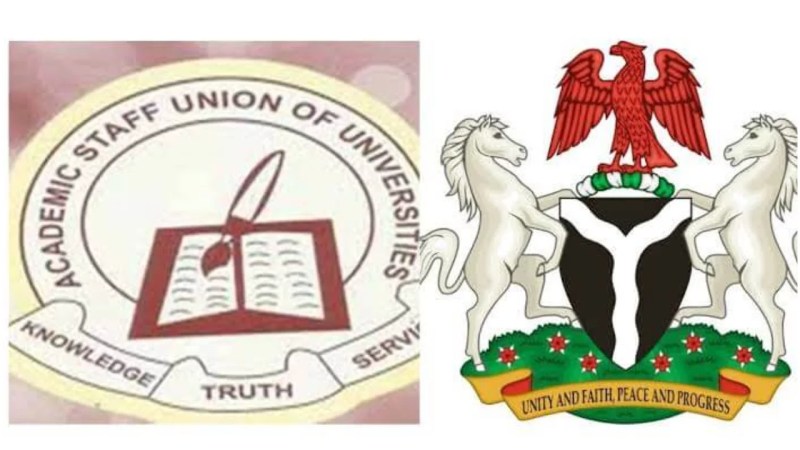Multiple unions won’t solve varsity crisis

October 13,2022
BEREFT of practical ideas on ways to end the protracted strike by the Academic Staff Union of Universities, the Federal Government last week hurriedly registered two rival unions in the university system in an undisguised move to divide lecturers. The new unions are the National Association of Medical and Dental Academics and the Congress of Nigerian University Academics. The government misses the point; it should focus on the short-term goal of getting schools to reopen, and on the long-term objective of revitalising the tertiary education system, its funding and equipping.
Obviously confident that the move would end the strike, the Minister of Labour and Productivity, Chris Ngige, while presenting the certificates of registration to the two unions, said they would exist alongside ASUU. Public university lecturers had embarked on strike on February 14 to protest over unpaid allowances, demand a better welfare package, and better funding of the universities, among others.
The government’s move could eventually prove counter-productive; unions opposed to strikes today may become militant in future. Brinksmanship is not the way out: the issues and ASUU’s demands are germane: fulfil past agreements, fund tertiary education adequately, and provide better welfare for the teachers.
Lecturers and indeed, all workers have the right to freely form, join or opt out of trade or professional associations. The International Labour Organisation describes this principle of the freedom of association as “the core of its values;” it is enshrined in its constitution adopted in 1919, and reaffirmed thereafter in several treaties and the UN Universal Declaration of Human Rights (1948). At face value, therefore, the new unions accord with global best practices. And viewed alongside the disagreement of a minority of lecturers across the country with ASUU’s frequent strikes, rival unions offer them other avenues to ventilate alternative views and aspirations.
But birthed by a desperate government, the new unions may struggle for legitimacy in future. Besides, the government may unwittingly be setting the stage for unhealthy rivalry, acrimony, and mutual distrust on the campuses. Multiple unions do not address the problems of the tertiary education system.
Resolving three issues should be the government’s preoccupation: one is raising the funds it agreed to release to lecturers and the institutions; how to rationalise its universities, and how to fund them in a sustainable manner. Anything less cannot guarantee industrial harmony.
Sadly, Nigeria has yet to meet the UNESCO benchmark that governments should spend between four and six per cent of GDP on education, and that in the government’s annual budget, a significant percentage should be earmarked for education
Since assuming office in 2015, the President, Major General Muhammadu Buhari (retd.), has not drastically departed from his predecessors’ low funding for education. In 2016, the regime’s first full year budget, it allocated N369.6 billion representing 6.7 per cent of the N6 trillion budget to education; in 2017, N550.5 billion or 7.38 per cent of the N7.29 trillion budget. In 2020, N671.07 billion of N10.33 trillion amounting to 6.7 per cent was allocated; while in 2021, education received N742 billion, 5.6 per cent of the N13.6 trillion budget. In 2022, education was earmarked N923.79 billion amounting to 5.39 per cent of the N17.13 trillion budget plan.
Education is on the concurrent legislative list, indicating that both the federal and state governments are responsible for driving quality research and learning. State governors should do much more in funding and upgrading their universities
The proliferation of universities amid chronic underfunding, infrastructural rot, poor pay and emoluments of staff and faculty, and understaffing is unreasonable. Both the states and the Federal Government engage in this reckless practice. At the tertiary level especially, quality drives education and not just numbers.
Worried by the situation, the Senior Staff Association of Universities and other stakeholders have cautioned against establishing universities that governments obviously cannot fund. Save for possibly Lagos, all the national and sub-national governments are cash-strapped. Sixty-three bills are currently before the National Assembly for the creation of additional tertiary institutions. Ignorantly, federal and state legislators view them as ‘constituency projects’ with which to score political points.
There are currently 49 federal universities listed by the National Universities Commission, but none is well-funded. The state universities are worse off, created by governors without adequate planning or revenue sources just to satisfy political ends.
Laughably, the government approved the disbursement of N18 billion as take-off grant for four new specialised universities of technology and health sciences in June 2021. Rationality prevails elsewhere. The Institute for Fiscal Studies notes that under England’s current higher education funding system, the government pays around £21 billion to fund the education of each cohort of around 425,000 English-domiciled full-time undergraduate students studying anywhere in the UK.
Some alumni associations in Nigeria have tried to support in the areas of research, medical centres, renovations, and buildings. But their donations are a drop in the ocean. They should do more to salvage the universities
In the United States, philanthropists, foundations, and wealthy alumni support colleges. A businessman, Michael Bloomberg, in 2018, donated $1.8 billion to his alma mater, Johns Hopkins University. Nike’s co-founder, Phil Knight, donated hundreds of millions of dollars spanning years to the University of Oregon, from where he graduated. A 2020 research by the Council for Advancement and Support of Education showed that alumni donations to US colleges accumulated to $11 billion in 2019.
The Nigerian government should merge some of the federal universities to achieve optimal standards. It should shut down the extra multiple military and paramilitary universities it rashly approved in recent years without regard to needs and funding.
Multiple unions and court rulings ordering ASUU back to work leave the issues of release of promised funds and equipping the universities unresolved. The government and the ASUU should therefore urgently reach an agreement for an out-of-court settlement to solve these knotty issues.
Already, an entire academic session is lost; for the sake of the hapless students, and their parents/guardians, urgently, both sides should shift ground






